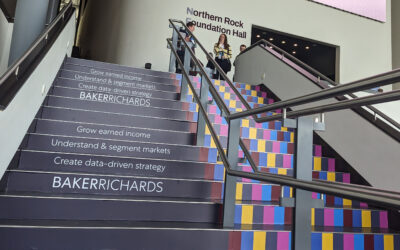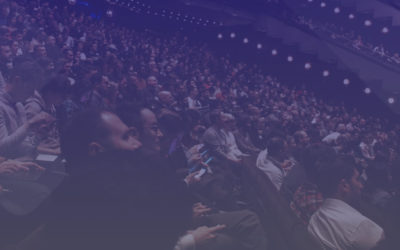Emotional resilience will be a key skill for 2022
January 29, 2022
Comment, Visitor Attractions
Categories
Tags
AAA of Income
Accessibility
Advantage Dashboard
Affiliation
Ancillary Sales
Audience Development
Behavioural Economics
Behavioural Segmentation
Business Planning
Conjoint Analysis
Consumer Psychology
Coronavirus
Discounting
Donations
Dynamic Pricing
Event Coding
Forecasting
Fundraising
Leadership
Marketing
Market Research
Membership
Modelling
Popular
Price Elasticity
Pricing
Pricing for digital
Primary Research
Repertoire Scoring
Resilience
Revenue Management
Revenue Management Application
Secret Seats
Segmentation
Segmentation Engine
Strategy
Subscription
Uplift
USA





Recently I interviewed candidates for new posts in our business. As an interviewee, putting yourself forward competitively for a job you want is one of the most stressful things you can do. Interviewers must respect that. And extending a job offer can create ripple effects in the lives of many people.
While ultimately the decision to accept a job offer or not is down to the individual, I’ve often been struck by the knock-on effects of a hiring decision, particularly when it involves relocation. People meet partners, children change schools, new friendships are created, old friendships may be lost. Families may be separated – or reunited.
Arts organisations are fond of referring to themselves as families. The phenomenally successful Danish programmer David Heinemeier Hansson is someone most people won’t have heard of, though the programming language he created underpins swathes of the modern internet.
Hansson thoroughly debunked the notion of company as family in a blogpost from 2017. “You don’t have to pretend to be a family to be courteous. Or kind. Or protective” he said. “All those values can be expressed even better in principles, policies, and, most importantly, actions.”
He went on: “The best companies aren’t families. They’re supporters of families. Allies of families. There to provide healthy, fulfilling work environments so when workers shut their laptops at a reasonable hour, they’re the best husbands, wives, parents, siblings, and children they can be.”
Culturally, the Danes are big on family. It’s not unusual for offices to be deserted by 4pm as workers head home. Hansson, perhaps, implies that we all return at the end of the day to a neat family unit. The reality of course can be kaleidoscopically different.
Remuneration not the sole motivation
One of the clearest instances where companies differ from families is the job interview – famously, you don’t get to choose your family. From the interviewer’s side of the (virtual) table, you’re looking for a good fit – the right person for your organisation and its mission, but also the person who will be able to develop and grow the most in your specific setting. The process also provides a rare opportunity to see your work reflected back at you from different external perspectives.
In this latest recruitment round, we met many early career and graduate candidates and I was struck, encouragingly so, by the frequency with which they proactively raised the topic of mental health. There’s a generation coming into the workforce who are clear that fair, competitive financial remuneration is not their sole driver. Community, intellectual stimulation, environmental and social responsibility, work/life balance – all these things matter too.
Hearing candidates talk about mental health so prominently reminded me that, too often in arts and culture, the serious conversations about workplace mental health come too late –when colleagues might already be experiencing poor mental health. This happens because we’re not upfront about the realities of work in this sector, both during the pandemic and in ‘normal’ times.
Immense pressure on staff
The creation of much art involves a complex exchange of risk, resources, time, money and raw emotion involving multiple, interdependent parties – but often with very different things at stake. In a previous role as a theatre marketer, I regularly had to navigate vastly different expectations.
On the one hand, those of confident and demanding commercial producers of a multi-venue tour to whom we were just one stop; and on the other, those of quieter, more diffident producers of shows for whom the ticket gross was probably negligible but realising their work in public was everything. One saw a transient opportunity to maximise yield; the other, an opportunity to change lives.
At the height of the pandemic, my colleague David Reece wrote about the Cynefin framework, a tool for recognising when a situation is either chaotic, complex, complicated or obvious – and then adopting the posture and tactics to use for each. Even when in the realm of the obvious – the standard operating procedure if you like – the pressure on people in our sector can be immense.
In the performing arts, the business model is one in which hundreds (or thousands) of people converge on a location in a short space of time for an experience. Once there, they expect instant service. The hours of peak consumption drive unsociable working hours for staff. Each audience is unique, each scene performed in a moment never to be repeated – it went well, or it didn’t, but it went, and is over. You can’t call back an audience after a bad performance to ask for a go-around.
Balancing your mind as well as your books
It’s increasingly important therefore that employers proactively protect their staff by promoting the active development of emotional resilience. The mental health charity Mind describes ways of developing resilience which include lifestyle changes, looking after physical health, being kinder to ourselves, and building a support network. Another excellent resource from thehub provides a balance toolkit that recognises the importance of balancing both your mind and your books.
But growing resilience is about more than web links and training resources. A key characteristic of a resilient team is one built on mutual respect and peer support where the team is invested in the work of the organisation. For Baker Richards, we achieve that by being an Employee Ownership Trust, with an elected employee representative on the board and with our whole team – a partnership – consulted on the major strategic decisions affecting the company. This model also drives a different kind of leadership so, as CEO, I present an annual report not to shareholders but to the team, of which I am a part.
The development of resilience needs to be a conscious aim. Employers that take individual as well as financial resilience seriously in 2022 will see greater stability with an increased appetite for innovation, reduced staff turnover, happier colleagues and improved commercial results. Isn’t that what everyone is aiming for at this stage of the pandemic?
This Insight first appeared in Arts Professional